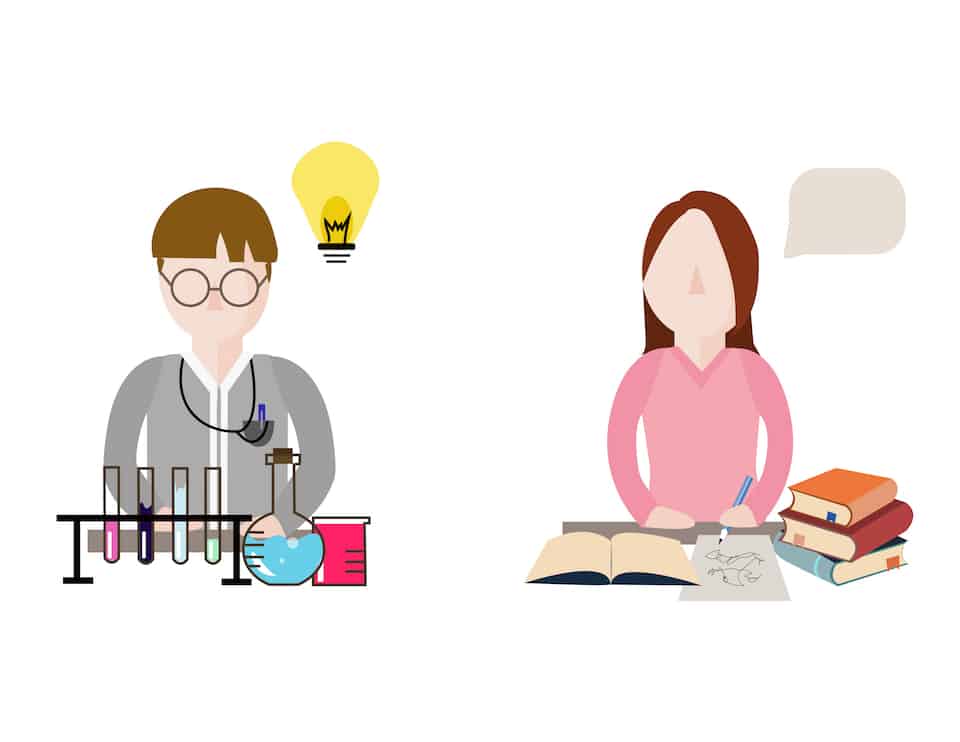The literacy rate in Canada, as well as in many other economically developed countries, is 99 per cent. In other words, 99 per cent of Canadians are able to read and write effectively in their daily lives. However, a striking 42 per cent of the Canadian population could be considered scientifically literate.. What is even more astonishing is that Canada stands first out of 35 countries in this ranking. Fifty-eight per cent of Canadians find it difficult to grasp scientific concepts such as whether the sun revolves around the earth, whether electrons are smaller than atoms, and human evolution. University of Toronto professor Dr. Michael Reid addressed this issue, and particularly the fear humanities students have of science, in his TEDx talk this past September.
Dr. Reid is a lecturer at the Department of Astronomy and Astrophysics at the University of Toronto. He teaches AST101 — The Sun and its Neighbours — an astronomy course intended for non-science students, and found that many of his students dread science. However, he feels that these students are just as capable in the sciences as science students.
Unlike other areas of knowledge, science is unique in that new discoveries and changes in thinking are constantly being made. In fact, it is this drive of new discoveries that appeals to many science students. Reid explained that while this drive also appeals to humanities students, “they feel like they just aren’t interested enough.”
Unlike science students, humanities students don’t feel encouraged to do science. They feel as though it is only for those who are actually in science programs — people other than themselves.
For these students, as well as the remaining 58 per cent of the public that find scientific concepts difficult, the media plays a huge role in how science is perceived. Often, even the media is not fully aware of scientific notions.
Take the anti-vaccination movement as an example. “There is no scientific basis for this movement” explained Reid. Moreover, people are making decisions for themselves and their children on pseudo-sceince, sometimes with consequences. Last season, the number of reported adult deaths due to influenza in Canada increased from about 350 to 600 deaths.
This is why Reid says that “scientific perspective is transformative.” In order for society to become more aware of scientific concepts, assimilate what the media bombards about science, and reduce the easily prevented 600 deaths due to influenza last season, the scientific literacy rate must rise. Perhaps the individual would not benefit much from becoming more knowledgeable in science, but it would be transformative for society as a whole.
The resistance that humanities students have towards science cannot be fully attributed to themselves. It is in part due to the way science is taught in classrooms. Many students have a misconception of science. They believe it is merely memorizing “somebody else’s answers to somebody else’s questions.” What is more important, however, is to comprehend scientific concepts and apply them to situations. More practical work should be integrated into science classrooms from a young age. This would make it easier for all students to learn and develop interest in science for many students who otherwise wouldn’t have one.
Looking at the other side of the coin, science students also face difficulties with humanities. In fact, a life-science student may find the physical sciences difficult. However, there isn’t that stigma associated with humanities as there is with the sciences. “You never hear ‘I just can’t do [humanities]’ but I must hear twenty times a day ‘I can’t do science’ Reid said. This is due in part to the way we portray science as being superior to humanities to humanities. Humanities can, however, be equally challenging.
Whether you are taking science as a breadth requirement or a compulsory course, science should not be approached with fear or resentment. Canadians should not find pride in ranking first in scientific literacy rate. The fact that 58 per cent of our population cannot grasp simple scientific concepts is just appalling. Instead, Canadians must collectively work hard to balance the literacy rate with the scientific literacy rate.


